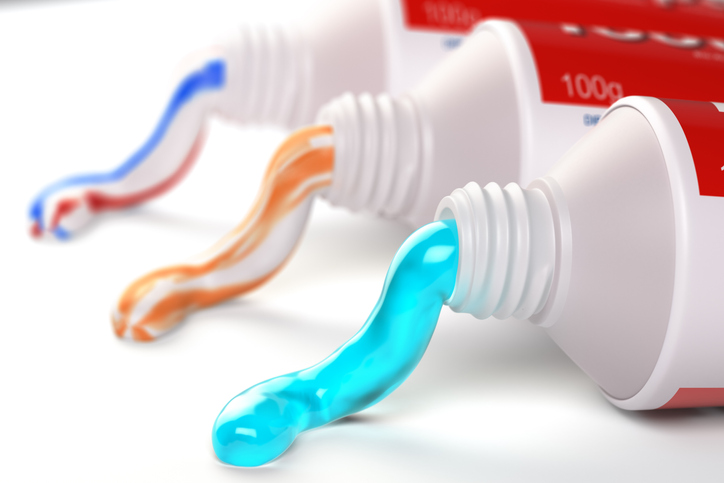
If you have dry mouth, you may be wondering if dry mouth toothpaste actually works. The short answer is yes — as long as you pick the right one.
Not only is dry mouth uncomfortable, but it can also lead to bad breath, cavities, and tooth decay. Luckily, there are a few things you can do to relieve your symptoms. You’ve probably heard that drinking more water throughout the day, using a humidifier at night, and quitting smoking can help. Brushing your teeth with a dry mouth toothpaste is also a great option — as long as you use the right toothpaste.
The Basics About Dry Mouth
Before we talk about dry mouth toothpaste and how it can help alleviate your dry mouth symptoms, let’s go over what exactly dry mouth is.
Dry mouth, also known as xerostomia, occurs when your mouth doesn’t have enough saliva. Autoimmune diseases, nutritional deficiencies, chemotherapy, radiotherapy, hormonal changes, diabetes, infections, and certain medications (such as antihistamines, decongestants, antihypertensives, or bronchodilators) may be to blame for a lack of saliva.
While dry mouth is rarely a serious condition, it can be unpleasant. You may experience a sore throat, occasional burning sensations, stickiness in your mouth, and difficulty swallowing, speaking, tasting, or chewing. Other symptoms include bad breath, cracked lips, and difficulty wearing dentures. You’ll also have a higher risk of developing tooth decay or cavities, as you won’t have enough saliva to effectively neutralize your mouth’s pH levels and wash away food debris.
All About Dry Mouth Toothpaste
If you have xerostomia, your toothpaste matters more than ever. Brushing your teeth with the wrong toothpaste can further irritate your mouth and worsen your symptoms!
When it comes to picking a dry mouth toothpaste, look for one that contains ingredients like xylitol or sorbitol, both of which are conducive to cultivating a healthy amount of saliva within the mouth. Bacteria can’t process these carbohydrates, making xylitol and sorbitol ideal for stimulating saliva and moisturizing or soothing dry mouths.
You’ll also want to make sure that your toothpaste contains fluoride. Brushing with a toothpaste that contains fluoride will help reduce your teeth’s rate of demineralization while increasing rate of remineralization. For additional protection against decay and cavities, your dentist may recommend brushing with a prescription-strength fluoride toothpaste.
Avoid any toothpaste with ingredients like sodium lauryl sulfate (SLS) or alcohol, as these can actually worsen your symptoms. SLS is found in many kinds of toothpaste and is responsible for creating foam when you brush, but it can also cause dry mouth, inflammation, irritation, and canker sores, while alcohol is naturally dehydrating.
You can also talk with your dentist about whether you need a prescription-strength dry mouth toothpaste or whether an over-the-counter toothpaste will suffice.
Remedying Dry Mouth
If dry mouth toothpaste isn’t helping, there are several other remedies you can try. Consider chewing sugar-free gum or candies, taking over-the-counter saliva substitutes that contain xylitol, swishing with dry mouth mouthwash, and breathing through your nose instead of your mouth.
You should also diligently follow an oral healthcare routine to help alleviate your dry mouth symptoms. This includes thoroughly brushing and flossing. Plus, you’ll want to avoid sugary or acidic foods and beverages, use a fluoride rinse, and visit your dentist for a checkup and thorough cleaning at least twice a year.
At Espire, our experienced dentists can help you combat dry mouth and answer any questions you have. If you live near Oklahoma City, stop by our Norman, Oklahoma office. Contact us today to schedule an appointment!


